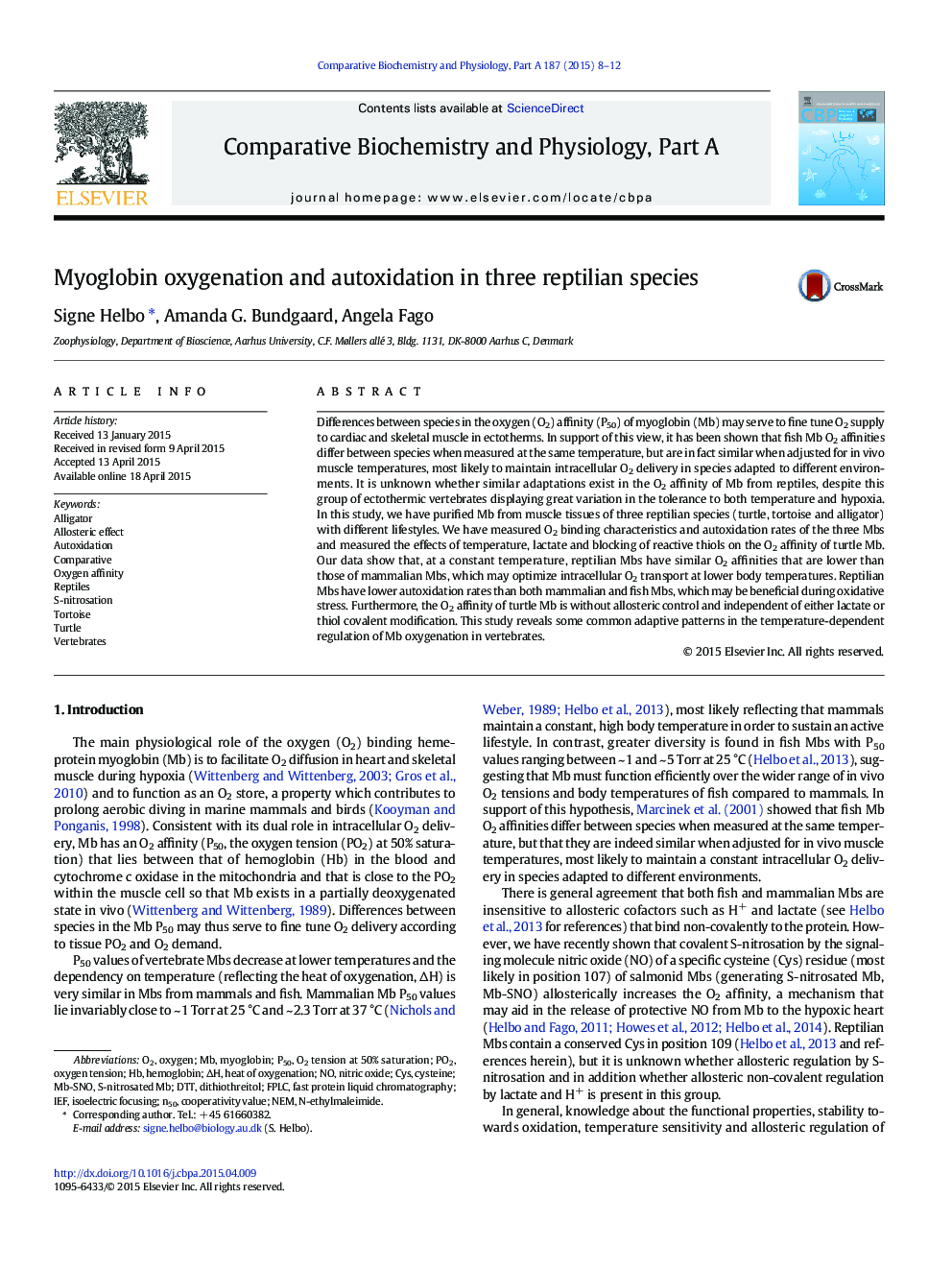| Article ID | Journal | Published Year | Pages | File Type |
|---|---|---|---|---|
| 1972012 | Comparative Biochemistry and Physiology Part A: Molecular & Integrative Physiology | 2015 | 5 Pages |
Abstract
Differences between species in the oxygen (O2) affinity (P50) of myoglobin (Mb) may serve to fine tune O2 supply to cardiac and skeletal muscle in ectotherms. In support of this view, it has been shown that fish Mb O2 affinities differ between species when measured at the same temperature, but are in fact similar when adjusted for in vivo muscle temperatures, most likely to maintain intracellular O2 delivery in species adapted to different environments. It is unknown whether similar adaptations exist in the O2 affinity of Mb from reptiles, despite this group of ectothermic vertebrates displaying great variation in the tolerance to both temperature and hypoxia. In this study, we have purified Mb from muscle tissues of three reptilian species (turtle, tortoise and alligator) with different lifestyles. We have measured O2 binding characteristics and autoxidation rates of the three Mbs and measured the effects of temperature, lactate and blocking of reactive thiols on the O2 affinity of turtle Mb. Our data show that, at a constant temperature, reptilian Mbs have similar O2 affinities that are lower than those of mammalian Mbs, which may optimize intracellular O2 transport at lower body temperatures. Reptilian Mbs have lower autoxidation rates than both mammalian and fish Mbs, which may be beneficial during oxidative stress. Furthermore, the O2 affinity of turtle Mb is without allosteric control and independent of either lactate or thiol covalent modification. This study reveals some common adaptive patterns in the temperature-dependent regulation of Mb oxygenation in vertebrates.
Keywords
Related Topics
Life Sciences
Biochemistry, Genetics and Molecular Biology
Biochemistry
Authors
Signe Helbo, Amanda G. Bundgaard, Angela Fago,
